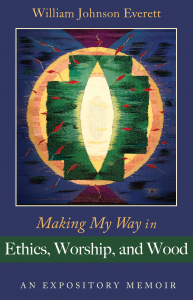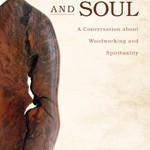Political arguments in America are being strangled by our preoccupation with rights to the exclusion of relationships as the focus of our ethics. Whether in arguments over abortion, gun violence, or health care, we are stuck on the stark oppositions of rights rather than the delicate interweaving of relationships as the moral ground of a good life together. We face not only the problem of establishing a proper balance between rights and relationships but of how we understand these two key terms.
A few weeks ago a lawyer friend and I attended a meeting of the local Tea Party to hear a talk by Robert Levy, of the Cato Institute, who was one of the lawyers who brought the infamous Heller vs. District of Columbia (2008) case to the US Supreme Court. The Heller case resulted in a five-to-four decision that held that the US Second Amendment “right to keep and bear arms,” originally applied to state militias, extended to individuals in their own homes. The extension of this “right” is now used to justify an omnipresence of guns in every area of our life.
While I was deeply troubled by the Tea Party’s raffle of an AK-47-type rifle for its fund-raising, I was more pervasively troubled by the way rights talk, with its accompanying radical individualism, was leading us to a world of frightened, mistrustful, and aggressive individuals. Moreover, because of the equally flawed Supreme Court ruling in Citizens United v. Federal Election Commission (2010), these individuals now masqueraded as immense corporations. The rights to free speech now cloaked their hidden manipulations of political life, which lie at the heart of the immense destructiveness of the present political leadership in my own state of North Carolina.
In the face of this language of individual rights we have to re-affirm the ancient wisdom that human beings are created for love and community. Moreover, we can overcome the fear that drives us to hatred, violence, and a fortress of isolation only when we have some sense of confidence that love is the fundamental principle of life. Whether this confidence comes from “religious” or “humanist” sources, it is this fundamental stance that undergirds a good life in community. The language of rights, with its retreat into the protection of privacy, is a companion to a life of fear, self-protection, and violence.
But, you may ask, don’t we need rights and especially a right to privacy and our protection of that privacy? What else can protect us from the omnipresent intrusions of the corporate and governmental surveillance that control increasing sectors of our life? Here, I think we need to look at the concept of rights again, not as absolute claims to hedge our individual lives off from a wider community but rather as personal preconditions for full participation in communities and publics where we can achieve the human goods of friendship, mutual education, and cooperative action in the face of common challenges to a sustainable life. We cannot do that without the basic trust that takes the risk of reaching out to others.
Rights are those preconditions necessary for people to participate in a fuller public life in the richness of viable communities. These communities do not arise from fear and coercion but out of common loves, whether we call them patriotism, public spiritedness, or devotion to the common good. We need to re-learn how to talk about these kinds of relationships and their preconditions. Only then can we turn away from the spiral of self-destruction exemplified by the gun lobby’s willingness to sacrifice thousands of lives a year for the sake of an abstract right rooted in fear.







 Red Clay, Blood River
Red Clay, Blood River